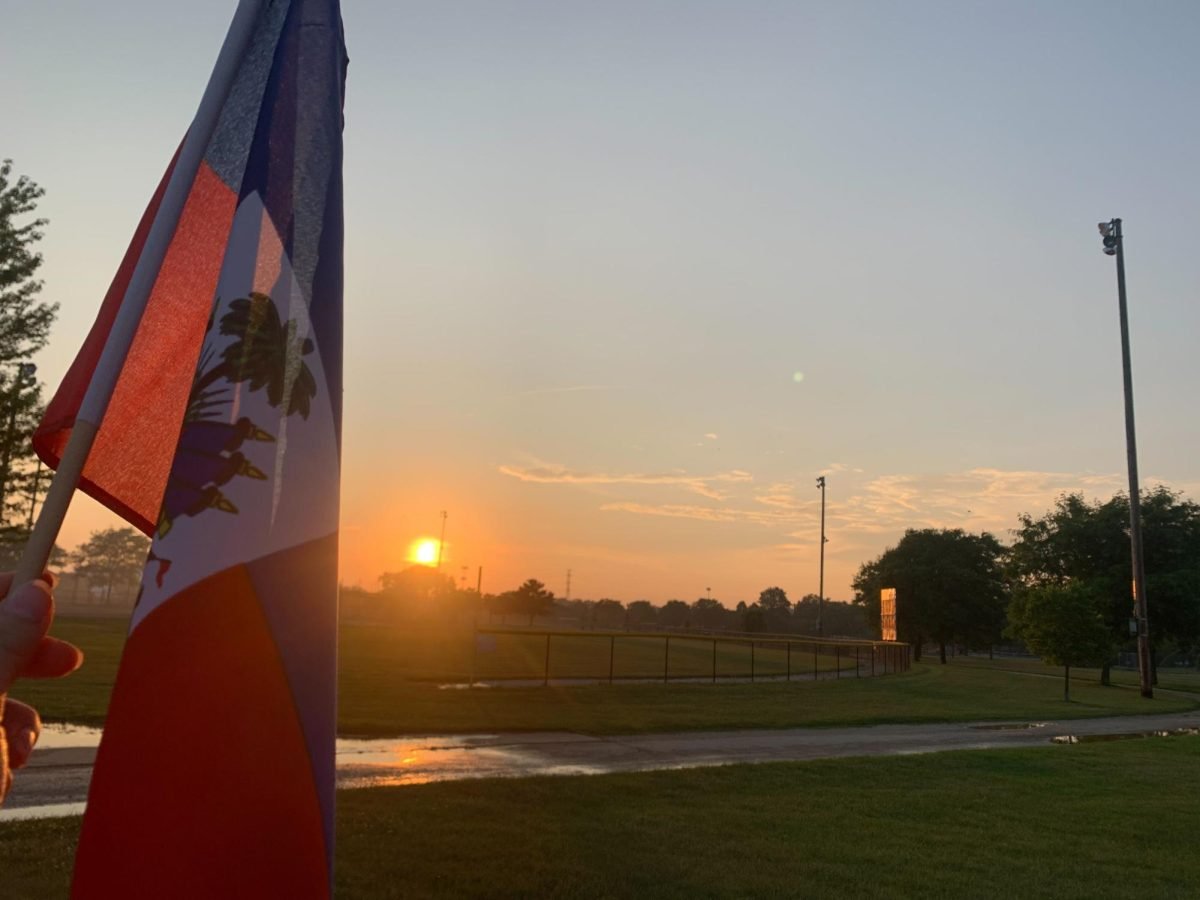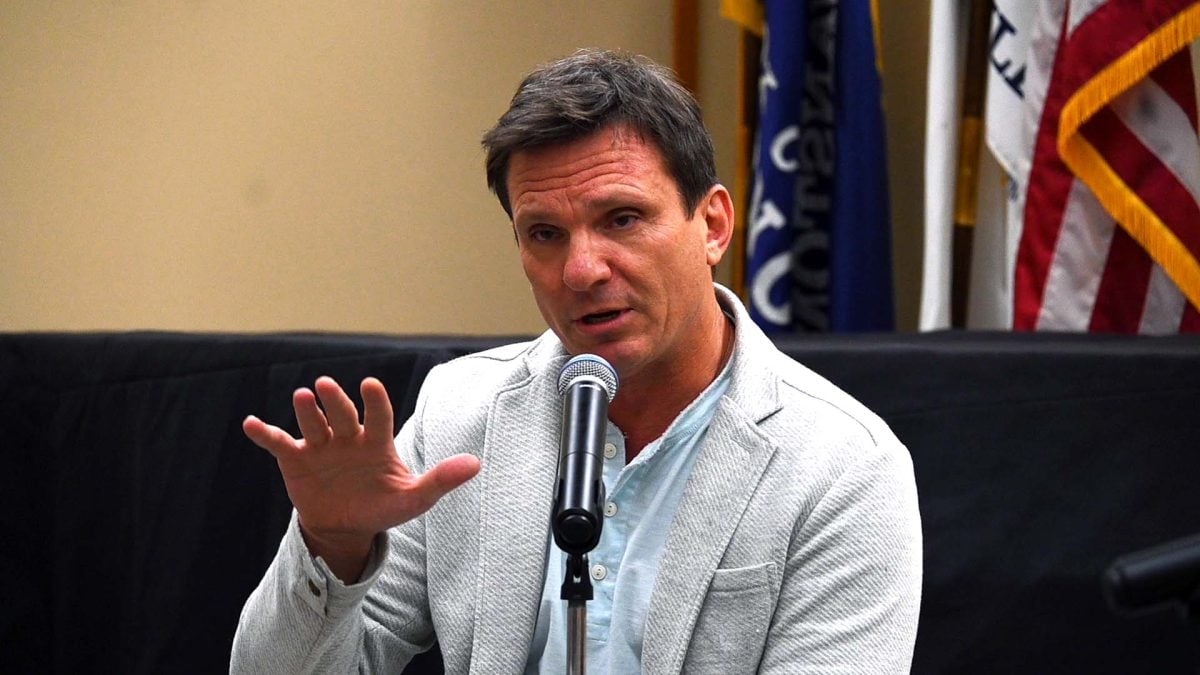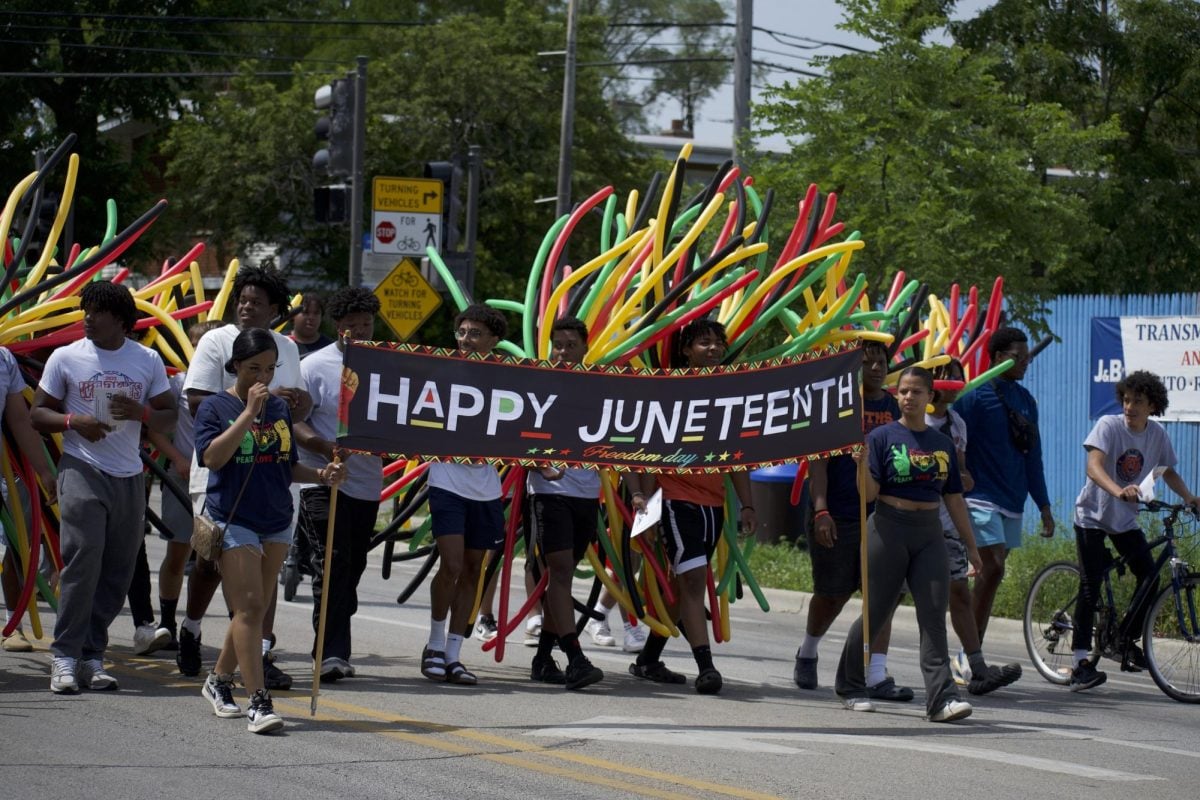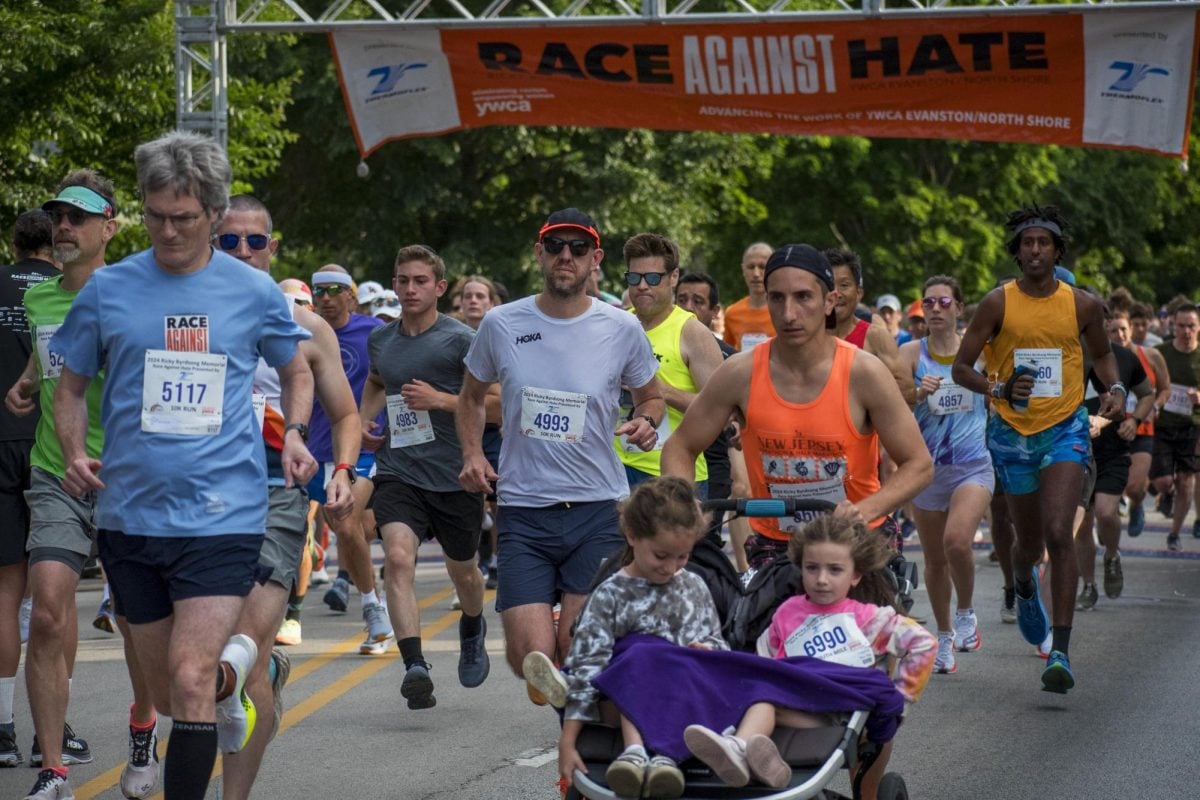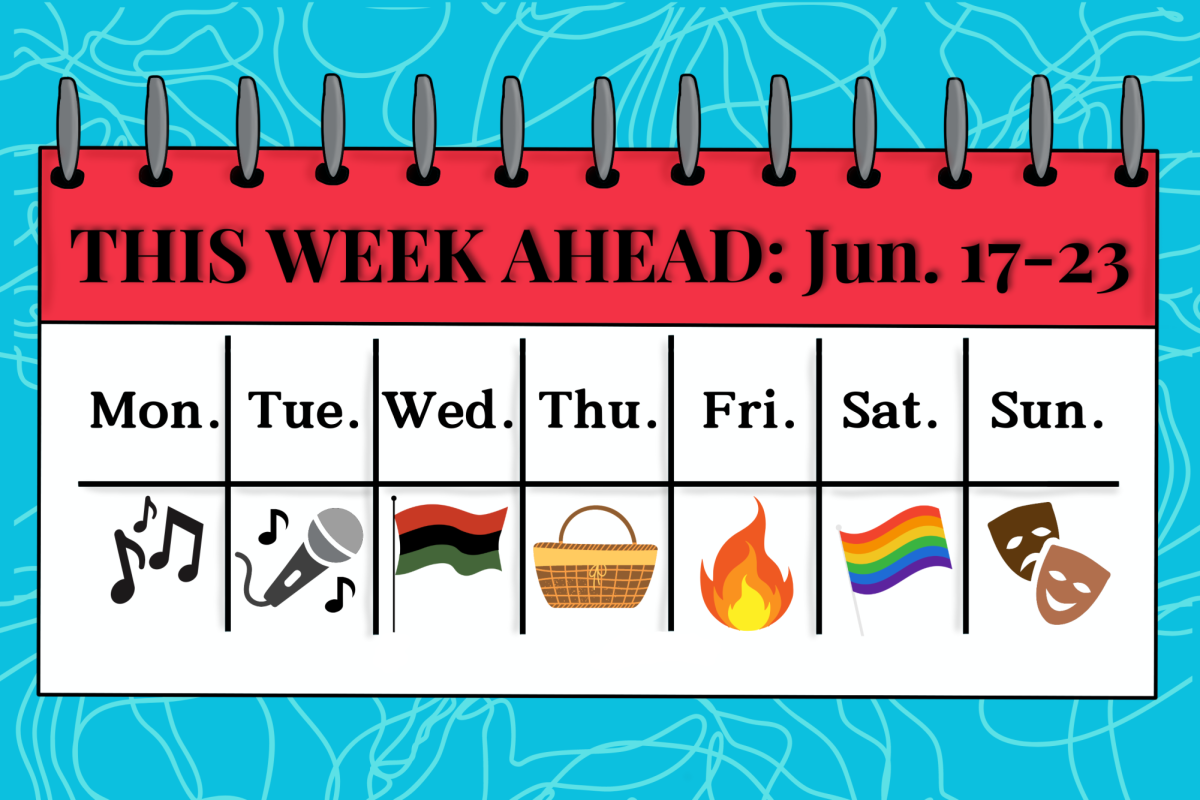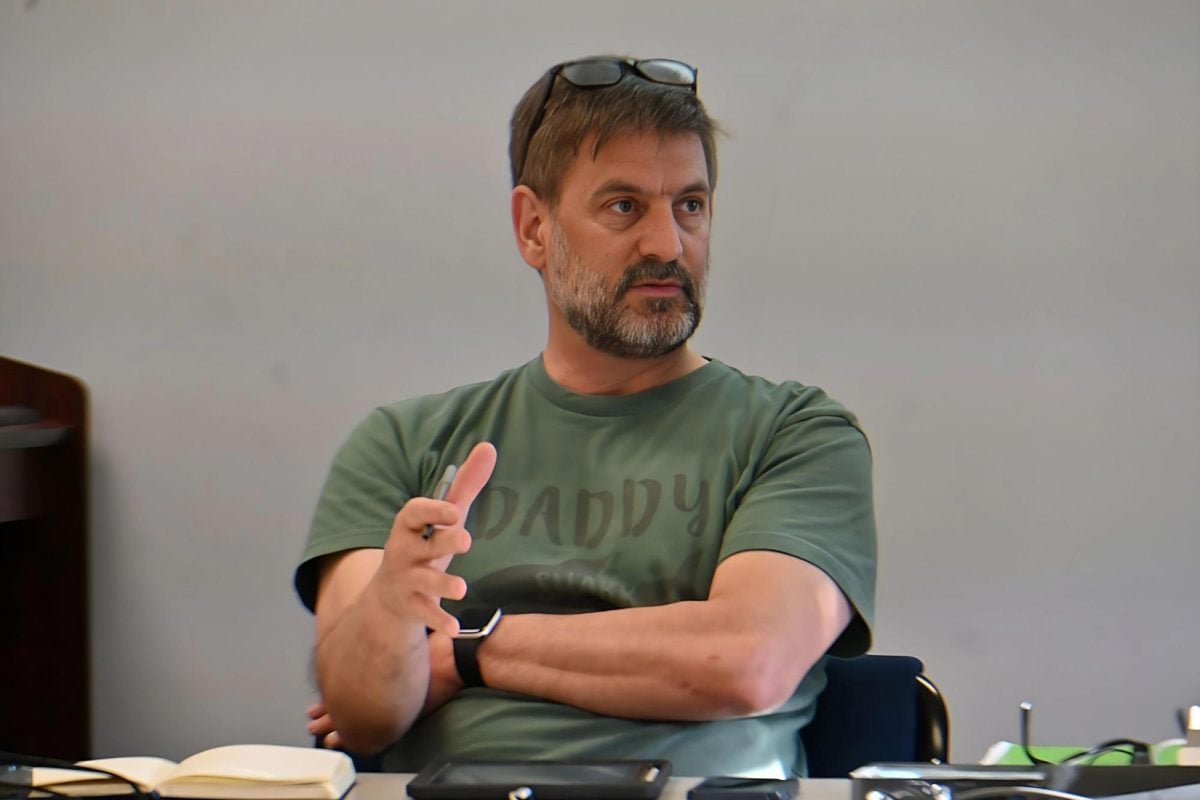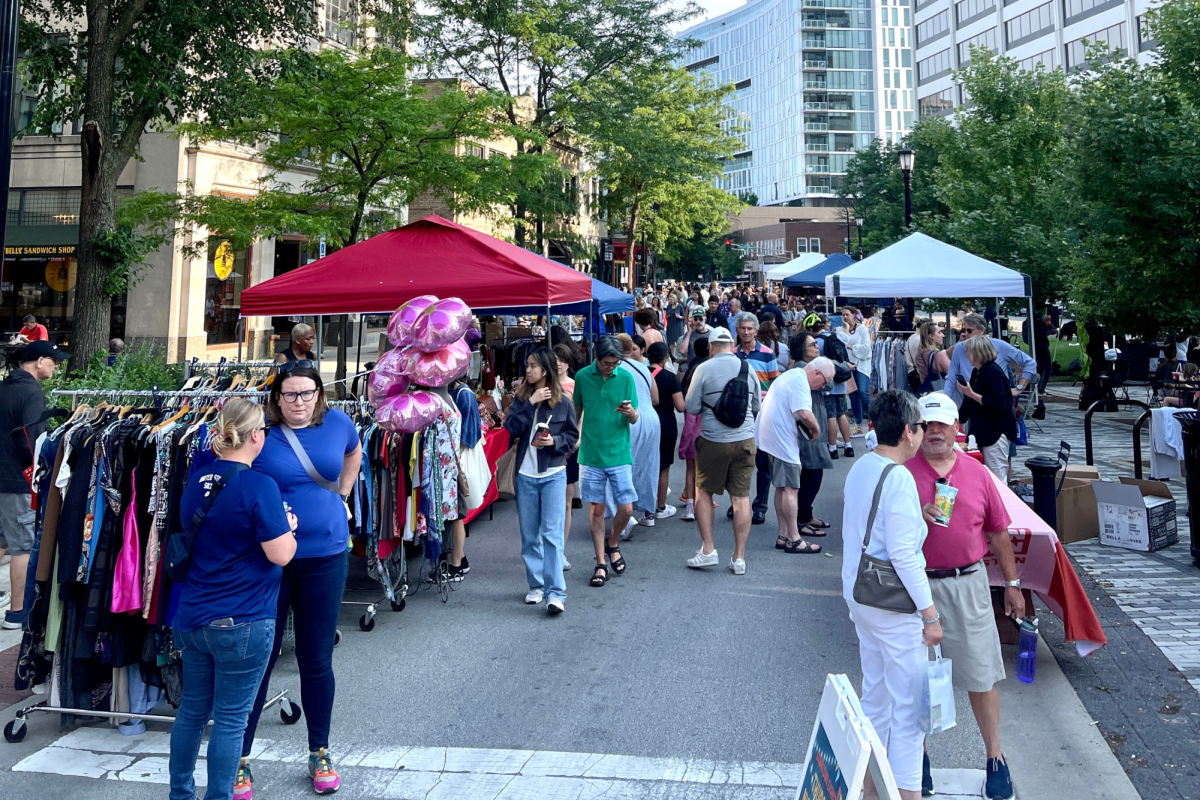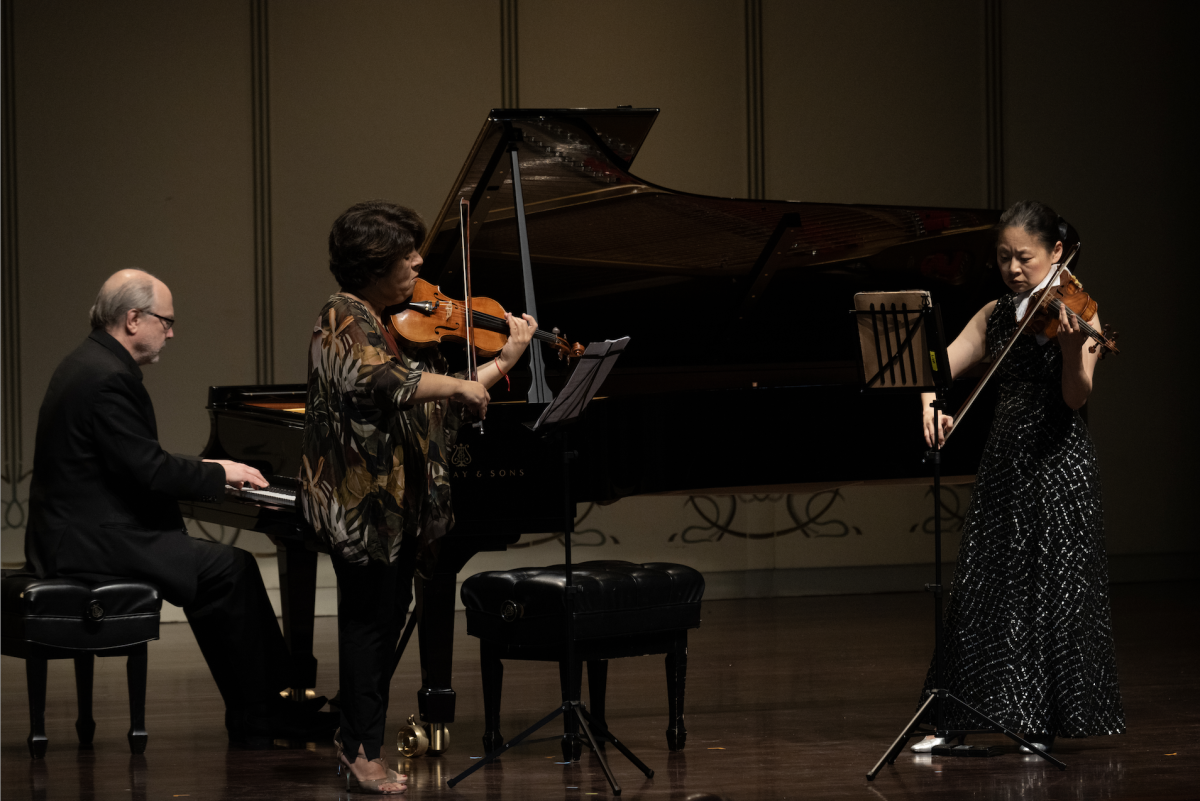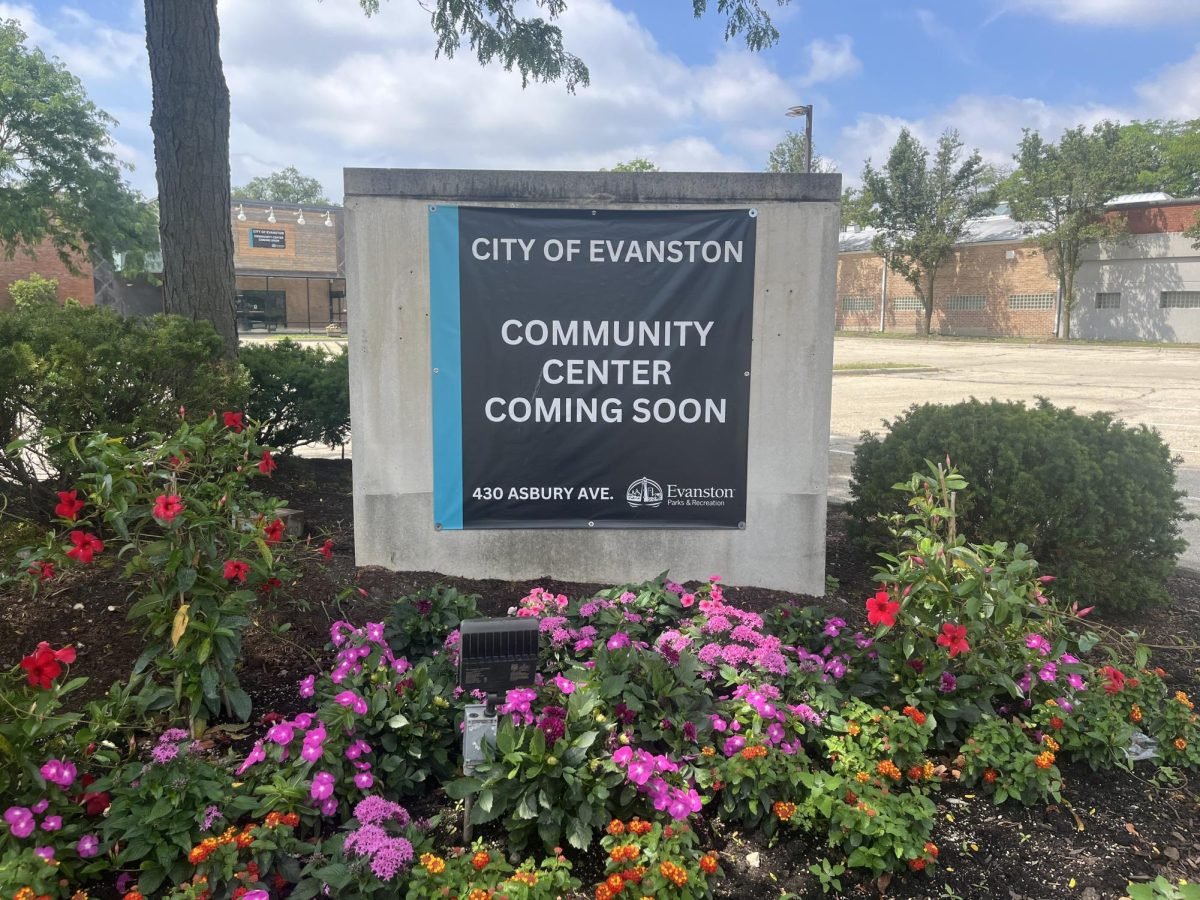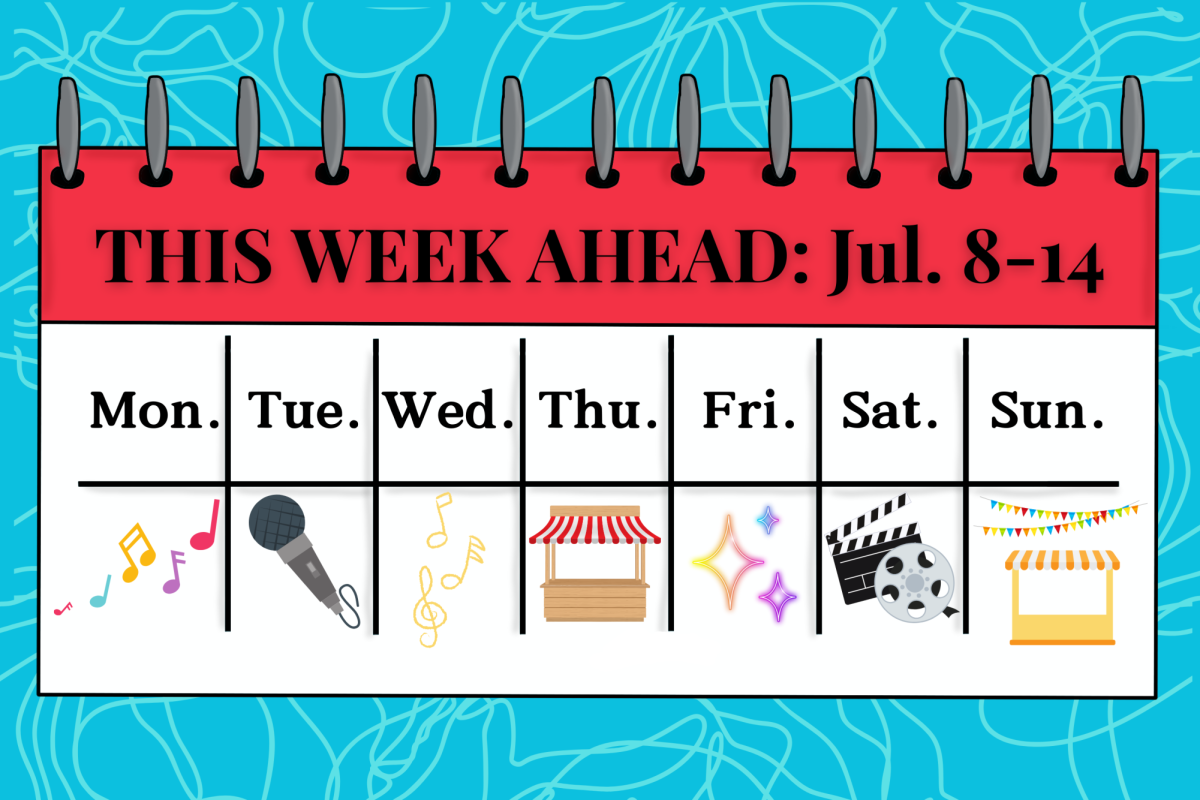Evanston’s Haitian community came together at James Park to celebrate Haitian culture and heritage at its 33rd annual Haitian Summer Festival.
The tradition started with a group of friends that came together to play soccer by Gerald Daye Sr.’s family’s house. What began as a fun way to spend time with each other eventually grew to incorporate Haitian music, food, and connections, and turned into the annual Haitian Community Organization Summer Festival, Gerald Daye Sr. said.
Daye Sr., president of the Haitian Community Organization and founder of the festival, said the message of the festival is to bring people together.
His son Gerald Daye Jr. said that the goal is for everyone — not just Haitians — to celebrate Haitian culture.
“It’s about us coming together and enjoying each other’s company, and being able to truly celebrate community, celebrate our background and our heritage,” Gerald Jr. said.
This year, the festival featured works of several Haitian artists, welcomed a variety of vendors, and offered activities to children, adults and seniors.
As Haitian song rhythms and community chatters filled the air, kids ran around with soccer balls, seniors enjoyed an occasional pickleball game and adults explored what each tent had to offer.
One of the vendors, the Haitian American Museum of Chicago, aimed to inform people about Haitian history, Daye Jr said.
Alex Fleming, a Chicago-born Haitian American and a graphic designer at the Haitian American Museum of Chicago, said the event was an opportunity to raise awareness of the museum’s presence and to represent his own cultural roots through his artwork.
“The art that I’m doing for me serves as just a way of expressing myself and different parts of my identity in a fun way,” said Fleming. “It’s always nice to see specific Haitian events because it feels like that part of my identity and the culture is getting the respect that it deserves.”
Daye Jr. said that the first step of learning more about the culture starts with knowledge and awareness.
For example, Chicago’s first permanent non-Indigenous settler, Jean Baptiste Point DuSable, was born in Haiti.
“Haitian people have helped build this country,” said Jazmine Daye Dillard. “We have a place and we’re here to stay, and I hope to continue to manifest that and grow and learn more about my culture and my heritage.”
The summer festival is an important way the Chicagoland area’s Haitian community is trying to preserve its cultural heritage.
Evanston resident Thony Daye said it’s one of the ways to pass traditions on to children.
“We don’t want the culture to die, because we have a third and fourth generation of Haitian children,” he said. “They don’t know the culture that much. So we’ll try to bring it to them.”
Haiti is home to Haitian Creole and French languages. There’s a diverse variety of music, with genres such as compas, rara, twoubadou and mizik rasin, and traditional dances like Yanvalou, Ibo and Congo.
Thony Daye said cultural awareness goes beyond the Haitian community to include those who know only one side of Haiti.
“Yes, it’s a poor country because of political issues, but if you remove that out of the equation, it’s paradise,” Thony Daye said.
Haiti’s socioeconomic situation continues to be hindered by political instability, gang violence and vulnerability to natural disasters, forcing many to seek refuge in the United States.
“I have visited Haiti every year until the assassination of the last president, Jovenel Moïse. Since then, it’s been chaos in the country,” said Thony Daye. “I can’t wait for things to quiet down so I can go back home.”
President Jovenel Moïse was killed in 2021. More than 192,000 Haitians have moved to the United States since then.
For many Haitians, events like the Haitian Community Summer Festival is one of the ways to connect to a home that is so close but currently inaccessible.
“Today is special,” said Lude-Walyssa Desrosier, a 16-year-old Haitian whose first time in the United States was on Christmas in 2022. “I see people from my country, and the music and everything. I’m very excited to come here today.”
Desrosier said she misses home and hopes to return to Haiti to her aunts, uncles and cousins.
Despite heavy rain that made all attendees seek shelter under umbrellas and tents, music and laughter did not stop.
“Haitian people — we’re resilient,” said Gerald Jr. “It just rained. Now we got beautiful sunshine. Everybody’s back out again.”
Email: [email protected]
Twitter: @_megija
Related Stories:
— Northwestern alum discusses experiences traveling abroad as a Haitian American
— Beacon Academy students lead mile-long walk for Haiti water well project
— Alumnus Jonathan Katz writes book about Haiti experience, international aid











